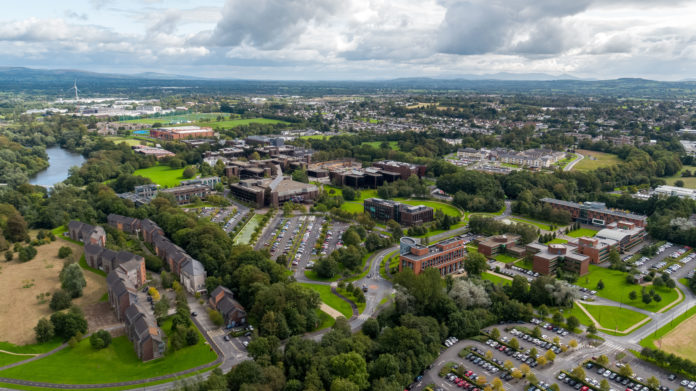
UNIVERSITY of Limerick (UL) has announced the establishment of a dedicated institute for the study of infectious disease, including COVID-19, today, Wednesday, May 20.
The Midwest Institute for Infectious Diseases at UL has already secured seed funding of €3.5million in a philanthropic contribution from the JP McManus Pro-Am 2021.
The institute for infectious diseases is being developed to harness core expertise, including medicine, health sciences, mathematics & statistics and life sciences, that exists at the university.
Research at the institute will inform future planning for the response to COVID-19 and potential future outbreaks of other notifiable diseases.
The new research institute will leverage these academic expert areas together with the support of the UL Hospitals Group and community health partners in the region.
Professor Norelee Kennedy, Vice President for Research at UL said many challenges have been presented by the current pandemic “societally, individually, economically and politically”.
“A sound scientific approach to better understand the extent of the virus is central to an informed, sustainable response to the management of the pandemic,” she said.
It is hoped that the institute will act as a regional testing and research centre for this and potential future viral outbreaks.
“Having a dedicated research institute for infectious diseases at UL allows us to put state of the art testing and research at the centre of a comprehensive understanding of viral disease in the Midwest region, and with this, an informed approach can be taken to detection, modelling and management of current and future viral outbreaks,“ she added.
Dr Des Fitzgerald, UL President said the collective expertise brought together by the University of Limerick will “ensure the Midwest has the information to tackle COVID-19 based on the best science and research”.
He continued, “It will in the first instance build a state-of-the-art laboratory at UL’s Park Point site to allow our researchers, clinicians, policymakers and medical community to identify who has been infected and link these data with national programmes aimed at contact tracing and measuring immunity in the population.”
The UL President said “epidemics threaten us at regular intervals” and believes a “clear lesson” from the COVID-19 pandemic is that “we need to stay prepared to tackle them with public health measures that are informed by the best science available”.
“The establishment of this institute at UL will lead to national health and economic benefits from real-time data capture and analysis to inform the wider societal and economic response to COVID-19, including for example informing the impact of a phased return to work. In parallel, it will shape our understanding of the impact of COVID-19 on people who have recovered from the disease,” Dr Fitzgerald concluded.
Drawing on existing expertise across a range of disciplines including psychology, dietetics and physiotherapy, the institute will provide a focal point for the future development of an extended research programme at UL focusing on post COVID recovery.


